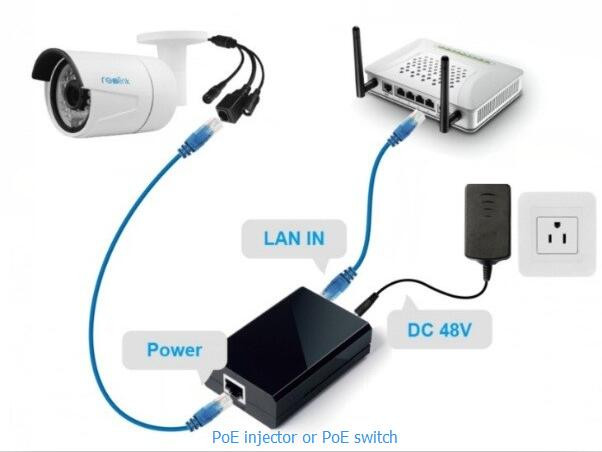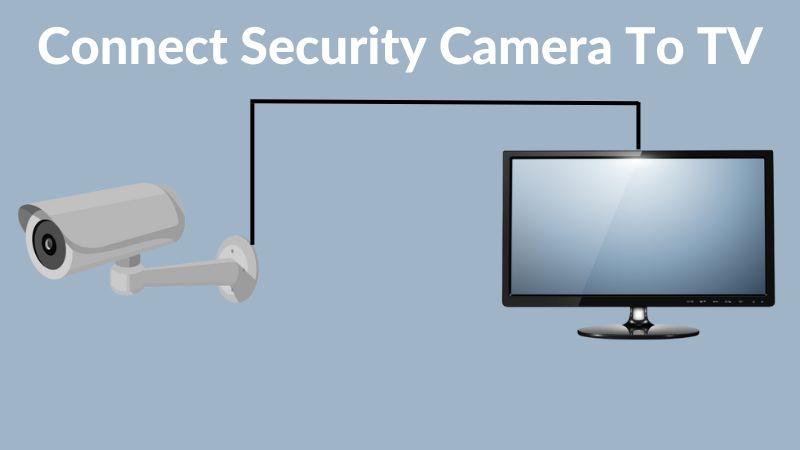Yes, you can use a CCTV camera without a DVR. Many modern CCTV cameras support direct internet access.
The evolution of technology has brought significant changes to security systems, particularly in how we utilize CCTV cameras. Gone are the days when the only way to record and store footage was through a Digital Video Recorder (DVR). Today, many CCTV cameras are smart, equipped with the capability to connect directly to the internet.
This advancement allows for real-time monitoring and access from anywhere in the world, provided you have an internet connection. Users can now opt for cloud storage solutions or even use the cameras’ built-in storage options, such as SD cards, to save footage. This shift not only offers flexibility in how we manage security surveillance but also simplifies the setup process, making it more accessible to a broader audience. The integration of CCTV cameras without DVRs into our security apparatus underscores the dynamic nature of technology in enhancing safety measures.

Credit: reolink.com
Introduction To Cctv Systems
CCTV systems are crucial for modern security. They deter crime and provide valuable footage.
Purpose Of Cctv
CCTV cameras serve multiple purposes. They monitor areas, deter unlawful activities, and collect evidence. Users gain peace of mind and control over their property’s security.
Components Of A Traditional Cctv Setup
- Cameras: Capture video footage.
- Lenses: Focus and enhance image clarity.
- Monitors: Display live or recorded video.
- Cables: Connect components.
- DVR: Records and stores footage.
Traditional CCTV setups require a DVR for recording. Yet, some modern cameras can function without one.

Credit: www.youtube.com
Dvr Role In Cctv
The Digital Video Recorder (DVR) plays a crucial part in CCTV systems. It records video footage from cameras for later viewing and analysis. Let’s explore the DVR’s role and discover how it shapes modern surveillance.
Functionality Of Dvrs
DVRs convert analog footage to digital format. They store and manage video data efficiently. DVRs often come with features like motion detection and remote access. These enhance security systems greatly.
- Conversion: Analog to digital video transformation
- Storage: Saves footage on hard drives or SSDs
- Accessibility: View live and recorded videos remotely
- Management: Organizes data, simplifies retrieval
Advantages Of Dvr In Surveillance
DVRs offer numerous benefits in CCTV setups. They provide reliable storage and improve video quality. Users gain better control over their surveillance systems. Below are key advantages:
| Advantage | Description |
|---|---|
| Enhanced Quality | Records higher resolution videos |
| Storage Capacity | Stores large amounts of data |
| Easy Retrieval | Simplifies searching for footage |
| Secure Access | Protects footage with encryption |
Alternatives To Dvr-based Systems
Modern technology provides options beyond DVRs for security camera setups. Let’s explore DVR alternatives like IP cameras and cloud storage solutions.
Ip Cameras Explained
IP cameras work without DVRs. They connect to networks directly. This allows for remote viewing and management. Many IP cameras have built-in storage with SD cards. Users can access footage through apps or web browsers. Here are key benefits:
- Easy setup: Plug-and-play functionality
- Flexibility: Access from multiple devices
- Scalability: Add cameras without extra hardware
Cloud-based Storage Solutions
Cloud storage offers a DVR-free method to store security footage. Cameras send video to secure off-site servers. Users can view live and recorded video online. Benefits include:
- Remote access: View from anywhere, anytime
- Enhanced security: Encrypted storage protects data
- No physical damage risk: Footage is safe from onsite hazards
Services often come with a subscription fee. Yet, they provide scalability and ease of access.
Cctv Without Dvr
Many people wonder, can we use CCTV cameras without a DVR? The answer is yes. This part of our blog explores how to make CCTV systems work without needing a DVR. Let’s dive into the options available.
Direct-to-device Recording
One way to use CCTV without a DVR is through direct-to-device recording. This method allows cameras to record video directly onto a storage device. Here’s how it works:
- Cameras connect to a network.
- They send video to a connected device.
- The device could be a computer, a memory card, or a cloud server.
This setup means no DVR is needed. People enjoy this option for its simplicity and cost-effectiveness.
Live Streaming Options
Another popular choice is live streaming. With live streaming, you can watch your CCTV cameras in real-time. Here’s what makes it great:
- No need for storage.
- Watch from anywhere on your phone or computer.
- Easy to set up.
Many cameras now offer live streaming through apps. This feature makes monitoring your space convenient and straightforward.
Pros And Cons Of Dvr-free Cctv
Exploring the world of CCTV without DVR unfolds various pros and cons. This setup allows cameras to function independently of traditional recording devices. Let’s dive into the benefits and drawbacks of a DVR-free CCTV system.
Benefits Of Avoiding Dvrs
- Cost-effective: Saves money by eliminating the need for expensive DVRs.
- Flexibility: Easier to install and reposition cameras without worrying about DVR connections.
- Accessibility: Direct access to live feeds through smartphones or computers.
- Scalability: Simple to add more cameras without upgrading DVR capacity.
Potential Drawbacks And Considerations
- Storage Concerns: Requires alternative storage solutions, which might be less secure.
- Dependence on Internet: For cloud storage or direct streaming, a reliable internet connection is crucial.
- Complexity: Setting up a network for cameras can be more complex than traditional systems.
- Maintenance: Individual cameras may need more frequent updates and maintenance.

Credit: cctvcameravision.com
Setting Up A Cctv System Without Dvr
Modern technology allows for flexible security solutions. A common question is: Can we use CCTV cameras without a DVR? The answer is yes. This section will guide you through the process of setting up a CCTV system without the need for a traditional DVR, using alternative storage methods and equipment.
Essential Equipment
- IP Cameras: These cameras connect to your network.
- Network Video Recorder (NVR): Records and stores video on a network.
- Cloud Storage: Offers off-site video storage.
- High-Speed Internet Connection: Ensures smooth video transmission.
- Power Over Ethernet (PoE) Switch: Powers cameras and transmits data.
- Computer or Mobile Device: For remote viewing and management.
Step-by-step Installation Guide
- Choose IP Cameras: Select cameras suited to your needs.
- Install Cameras: Position and secure cameras at strategic points.
- Connect to PoE Switch: Use Ethernet cables for power and data.
- Configure Network: Ensure cameras and NVR are on the same network.
- Set Up NVR or Cloud: Follow the provider’s setup instructions.
- Test the System: Check camera feeds and recording functions.
With these steps, your CCTV system will be operational without a DVR. Use a reliable NVR or secure cloud service to save and manage your video footage effectively.
Security And Privacy Concerns
Exploring the idea of using CCTV cameras without a DVR raises significant security and privacy concerns.
Protecting data and preventing unauthorized access are top priorities.
Data Protection
Security cameras capture sensitive footage. Without a DVR, alternative storage solutions must ensure data safety.
- Cloud storage offers remote access.
- Encryption protects data from hackers.
- Regular backups prevent data loss.
Users must understand the importance of strong passwords and secure networks to protect their camera feeds.
Unauthorized Access Risks
CCTV systems face the risk of unauthorized access. This can lead to privacy invasions.
| Risk | Prevention Method |
|---|---|
| Hacking | Use firewalls and secure passwords. |
| Physical Tampering | Install cameras in hard-to-reach places. |
| Signal Interception | Employ encrypted wireless signals. |
It’s essential to stay informed about the latest security updates and practices.
Future Of Surveillance Technology
The future of surveillance technology shapes the way we think about security. Advancements in this field are creating systems that are more flexible, easier to access, and can operate independently from traditional setups. Let’s explore what the future holds for camera surveillance without the need for a Digital Video Recorder (DVR).
Emerging Trends
Security landscapes are evolving rapidly. We now see a shift towards smarter, more connected environments. These trends include:
- Cloud-based storage solutions – These allow for remote access to footage.
- AI integration – Cameras can now detect and analyze movements.
- Wireless technology – This makes camera installation and relocation easy.
- Edge computing – Cameras process data on their own, reducing latency.
Innovations In Camera And Storage Tech
Camera technology is getting smarter. Here are some innovations:
| Type | Feature | Benefit |
|---|---|---|
| IP Cameras | Direct network connection | No DVR needed |
| Smart Cameras | Onboard analytics | Intelligent detection |
| Solar-powered Cameras | Self-sustaining | Eco-friendly operation |
Storage technology is not left behind. Cameras with built-in storage allow users to record and save video without a DVR. Cloud storage offers endless space for video data. The combination of these camera and storage innovations presents a new era in surveillance tech.
Frequently Asked Questions
Can Cctv Cameras Work Without Dvr?
CCTV cameras can operate without a DVR for live monitoring, but without a DVR, the system won’t record or store footage for later review.
Is Dvr Necessary For Home Security Cameras?
For home security cameras, a DVR is not strictly necessary if real-time viewing suffices or if the cameras have built-in storage or cloud upload capabilities.
What Alternatives Exist To Dvr For Cctv?
Alternatives to DVR for CCTV include NVR (Network Video Recorders), cloud storage solutions, and cameras with onboard storage such as SD cards.
Can Ip Cameras Function Independently Of Dvr?
IP cameras can function independently by transmitting footage over the internet, allowing for live viewing and storage on cloud-based services or internal memory.
How To Record Cctv Without Traditional Dvr?
To record CCTV without a traditional DVR, you can use cloud services, direct recording to a computer or server, or cameras with integrated storage options.
Conclusion
Wrapping up, it’s clear that CCTV systems can operate without a DVR, leveraging cloud storage and IP-based technology. This flexibility ensures seamless security monitoring, catering to modern needs. Embrace these innovations for a streamlined, accessible surveillance setup.





